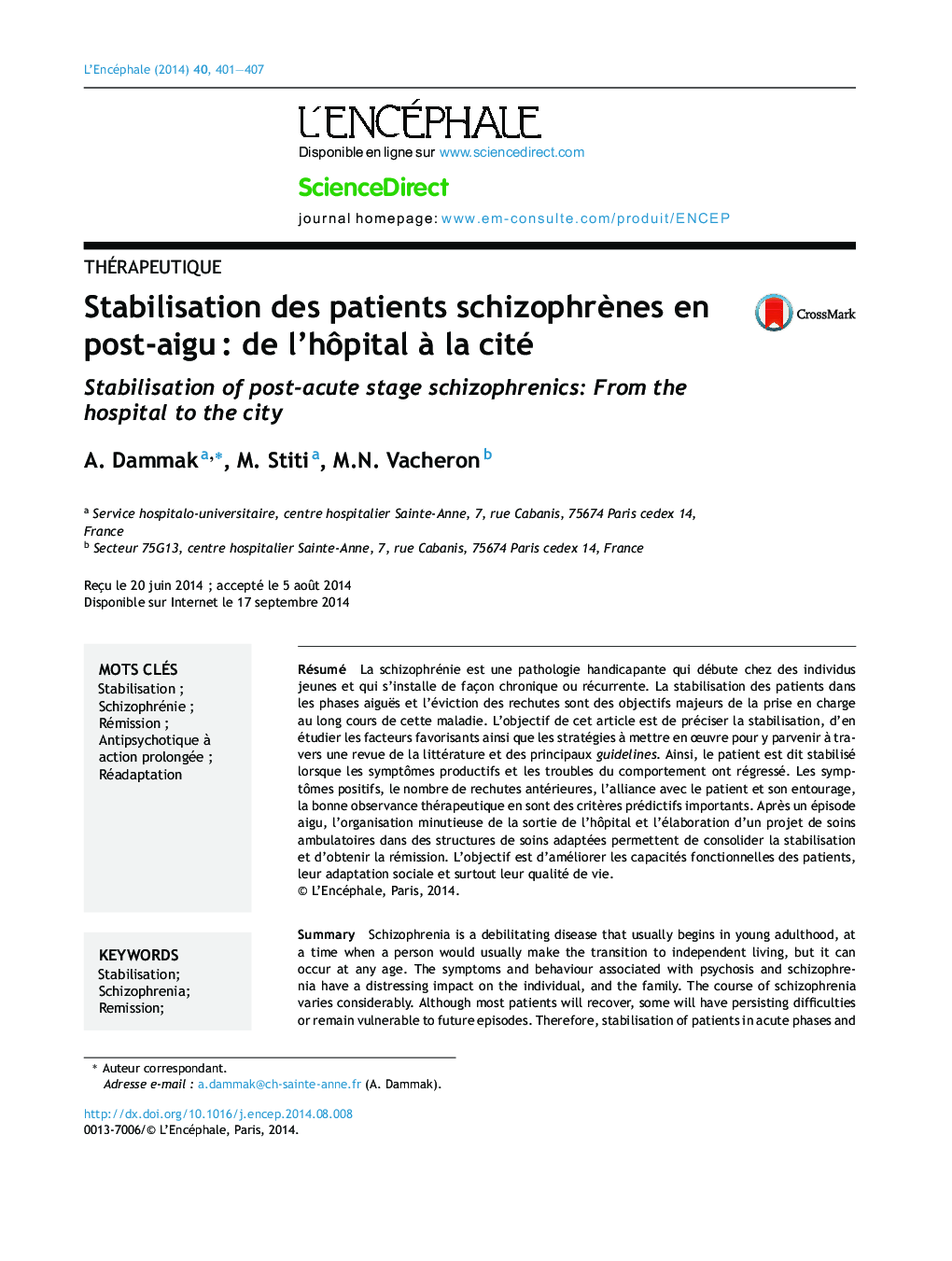| کد مقاله | کد نشریه | سال انتشار | مقاله انگلیسی | نسخه تمام متن |
|---|---|---|---|---|
| 4181697 | 1277137 | 2014 | 7 صفحه PDF | دانلود رایگان |
عنوان انگلیسی مقاله ISI
Stabilisation des patients schizophrènes en post-aigu : de l'hôpital à la cité
دانلود مقاله + سفارش ترجمه
دانلود مقاله ISI انگلیسی
رایگان برای ایرانیان
کلمات کلیدی
موضوعات مرتبط
علوم پزشکی و سلامت
پزشکی و دندانپزشکی
روانپزشکی و بهداشت روانی
پیش نمایش صفحه اول مقاله

چکیده انگلیسی
Schizophrenia is a debilitating disease that usually begins in young adulthood, at a time when a person would usually make the transition to independent living, but it can occur at any age. The symptoms and behaviour associated with psychosis and schizophrenia have a distressing impact on the individual, and the family. The course of schizophrenia varies considerably. Although most patients will recover, some will have persisting difficulties or remain vulnerable to future episodes. Therefore, stabilisation of patients in acute phases and avoidance of relapse are major objectives of management throughout the course of this disease. The purpose of this article is to clarify the stabilisation, to study the contributing factors and strategies to implement to achieve stability, through a literature review and key guidelines. Thus, the patient is stabilised when productive symptoms and behavioural problems have decreased. So, the stable phase represents a prolonged period of treatment and rehabilitation during which symptoms are under adequate control and the focus is on improving functioning and recovery. Important predictive criteria of stabilisation include: positive symptoms, the number of previous relapses, cooperation with the patient and family, good adherence to treatment and the use of long acting injectable second-generation antipsychotics. After an acute relapse, the careful organization of the discharge and the development of a proposed ambulatory care in tailored care structures will help consolidate stabilisation and obtain remission. Accepting the idea of continuing treatment is a complex decision in which the psychiatrist plays a central role beside patients and their families. The course of integrated actions on modifiable risk factors such as psychosocial support, addictive comorbidities, identification of prodromes, active information for the therapeutic education of patients and families and access to care will also be supported. This would improve the functional abilities of patients, their social adaptation and particularly their quality of life.
ناشر
Database: Elsevier - ScienceDirect (ساینس دایرکت)
Journal: L'Encéphale - Volume 40, Issue 5, October 2014, Pages 401-407
Journal: L'Encéphale - Volume 40, Issue 5, October 2014, Pages 401-407
نویسندگان
A. Dammak, M. Stiti, M.N. Vacheron,